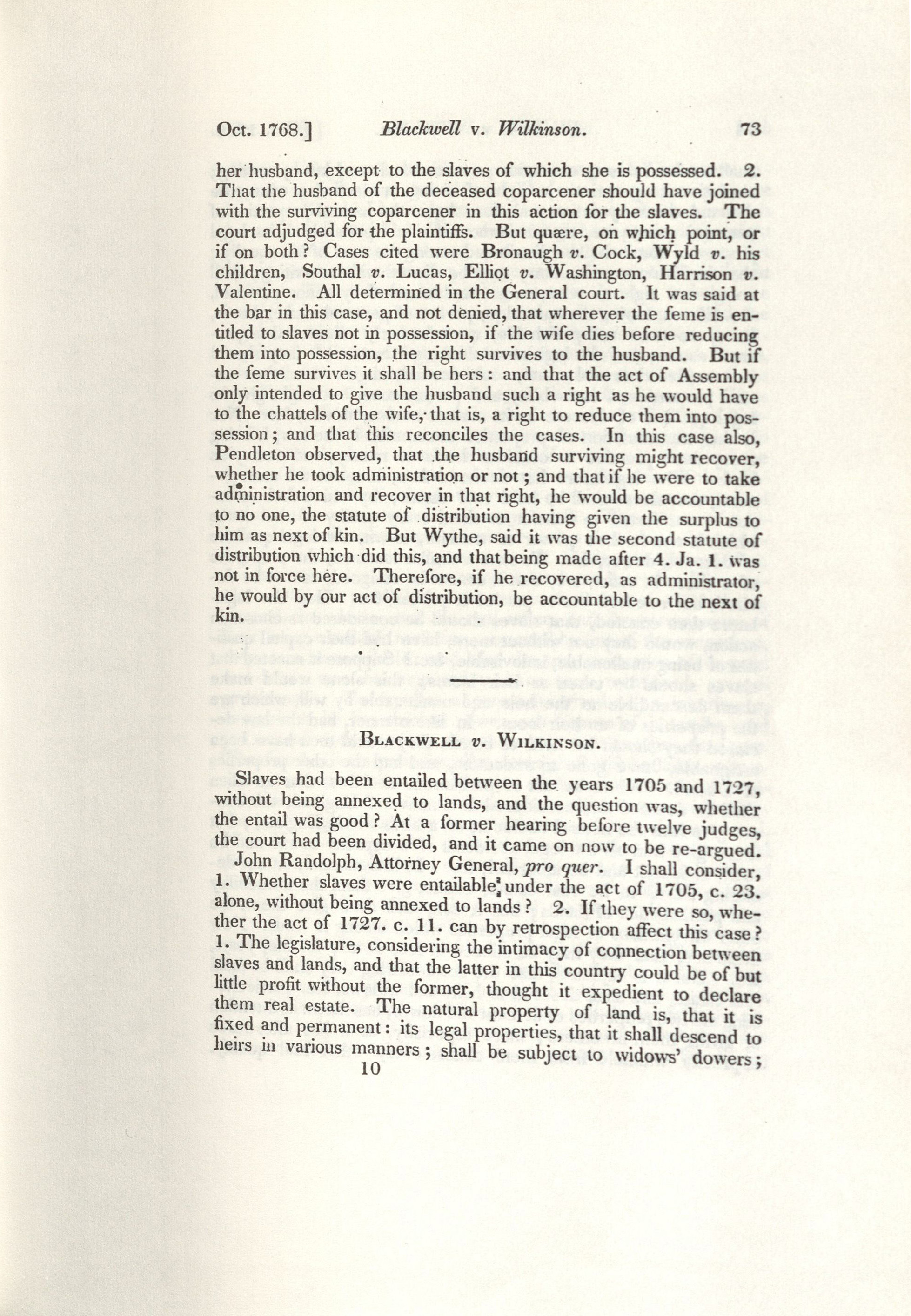Blackwell v. Wilkinson

Blackwell v. Wilkinson, Jefferson 73 (1768),[1] involved a dispute over whether an entailment on slaves made before 1727 was valid when the slaves had not been annexed to lands. George Wythe, for the defendant, argues that the statute de donis did not make all inheritable real estate entailable.[2] Wythe notes that the statute de donis makes only lands, manors, tenements, and property annexed to lands entailable.
This case involved the entailment of slaves between the years 1705 and 1727 and whether an act passed in 1727 prohibiting such entailments applied retroactively to the slaves in this case. Attorney General John Randolph John Randolph, for the plaintiff, argued that when the legislature declared slaves to be real estate in 1705, it gave them all of the legal properties of land. According to Randolph, this means that they are entailable in the same way as any other real estate. He further argued that the legislature would have put in language expressly prohibiting entailments if they had intended to not give slaves that quality. Furthermore, the act of 1727 expressly forbade entailments, a law the legislature passed because it recognized that the original act allowed the practice.
Wythe argued that calling a thing real property does not automatically make the property entailable. He offers copyholds as an example of real property that is not entailable. Wythe argued legislative intent and stated that the legislature did not mean to allow owners to entail slaves because doing so would mean ruin for the heir: he would not be able to sell the slave in order to pay debts and might not have any other estate. Furthermore, Wythe argued, because slaves are transitory and changeable in time and place, can be conveyed without a deed, and an entail of slaves can never be docked, an entailment of slaves would be highly impractical and difficult to apply.
The Court's Decision
The judges ruled 7-3 in favor of the defendant, finding that the entailments were not valid.
See also
References
- ↑ Thomas Jefferson, Reports of cases determined in the General Court of Virginia, from 1730 to 1740 and from 1768 to 1772, ed. Thomas Jefferson Randolph. (Charlottesville: F Carr and Co., 1829; Buffalo, N.Y. : W.S. Hein, 1981): 73.
- ↑ Ibid, 82.